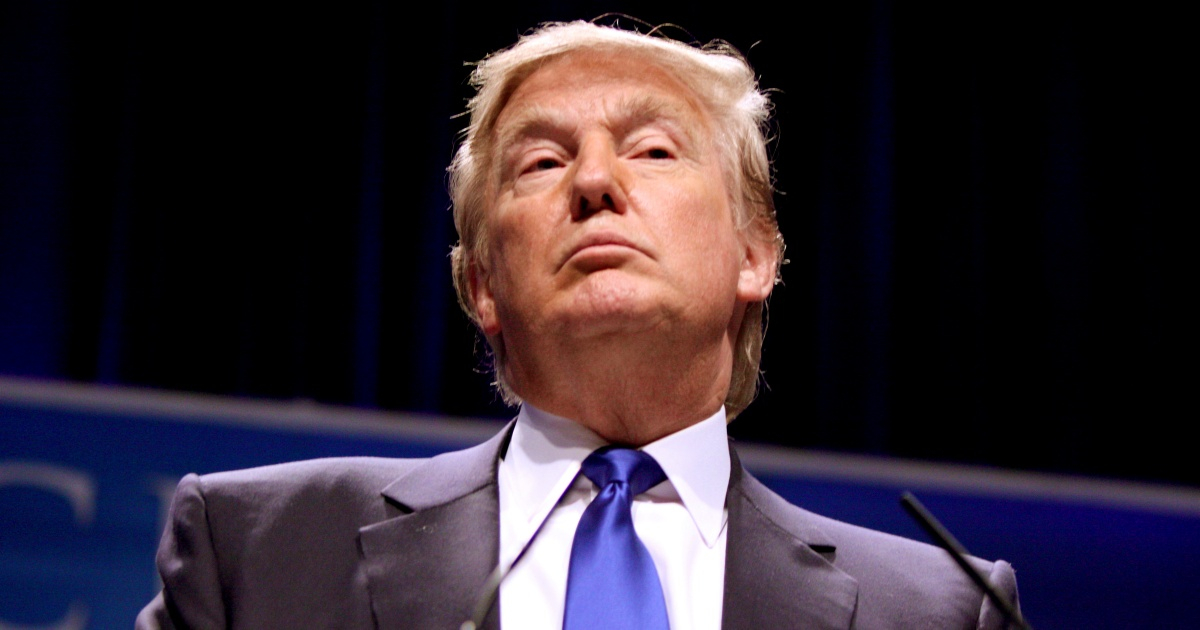
The elected president of the United States, Donald Trump, has announced that he will use all legal tools at his disposal to carry out what promises to be the largest deportation in the country's history.
Among these measures is the potential elimination of visas for countries that refuse to accept their deported citizens, a strategy that could significantly alter immigration policy and international diplomatic relations.
Immigration Law as a Tool of Pressure
Trump plans to take advantage of Section 243(d) of the Immigration and Nationality Act (INA), which allows the government to suspend the issuance of visas to citizens of countries that "unjustifiably deny or delay" the acceptance of deportees.
According to this section, the Secretary of State would be authorized to direct consular officials to suspend the issuance of visas, including both immigrant and non-immigrant visas.
The document Project 2025, which outlines the ultra-conservative policies that could guide the next administration, supports this strategy and details how to implement the law to ensure international cooperation.
"The strict enforcement of this law will demonstrate a seriousness previously lacking regarding the expectation that other nations must respect U.S. immigration laws," the text states.
Impact on visas and affected countries
The strategy could have drastic consequences, as the United States issued a record 11.5 million visas in fiscal year 2024, a figure that includes both immigrant visas (for permanent residence) and non-immigrant visas (for tourism, temporary work, students, among others).
Among the most affected countries could be Cuba, Nicaragua, Venezuela, China, Russia, and India, nations that have historically shown resistance to accepting deportees from the United States.
In some cases, such as that of Cuba, cooperation is limited: although there are migration agreements, the Cuban regime controls the quantity and conditions of deportations.
Since April 2023, only one deportation flight has been conducted each month, which has resulted in the repatriation of less than a thousand individuals in total over more than a year and a half.
Other pressure tactics
The cancellation of visas is not the only pressure tactic that Trump considers.
During his first presidency, he used tariffs to pressure Mexico and Canada on immigration issues, a tactic that could resurface in this new phase.
Furthermore, the elected president has hinted at the use of extreme measures, such as the construction of detention camps, mass raids in workplaces, and the deployment of military forces at the border.
Record numbers of visa issuance
The U.S. visa system has shown steady growth in recent years. In fiscal year 2024, 11.5 million visas were processed, surpassing the 11 million from fiscal year 2023.
This increase is even more pronounced when compared to the 8.7 million visas processed in 2022, the 6.7 million in 2021, and the 4.9 million in 2020.
These figures reflect an upward trend in visa issuance, indicating a significant recovery after the most critical years of the pandemic.
Among the countries with the highest number of visas issued are Mexico, India, Brazil, Colombia, and China, noting that two of them—India and China—have been reluctant to accept deportations.
A landscape of uncertainty
The implementation of these measures could alter the international dynamics regarding migration.
Tom Homan, the future head of deportations under the Trump administration, acknowledged the challenges of the process.
"We can't just put them on a plane... there's a process we need to follow," he said.
With this strategy, Trump is not only seeking to fulfill his campaign promise of deporting 11 million people but also to exert diplomatic pressure through immigration control, positioning the United States as a more stringent player in international visa policy.
However, it remains to be seen how the affected countries will react to these measures, which could redefine bilateral relations in the coming years.
Frequently Asked Questions about Donald Trump's Mass Deportation Plan
What measures does Donald Trump include in his plan for mass deportations?
Donald Trump has announced a plan that includes the cancellation of visas for countries that do not cooperate in accepting their deported citizens, the use of tariffs as a pressure tool, the construction of detention camps, and mass raids in workplaces. The plan also involves the deployment of military forces at the border.
Which countries might be most affected by the suspension of visas?
Among the most affected countries might be Cuba, Nicaragua, Venezuela, China, Russia, and India, due to their historical resistance to accepting deportees from the United States. In particular, Cuba faces limitations in cooperation, with only one deportation flight per month since April 2023.
What impact could the removal of humanitarian parole have on immigrants?
The elimination of humanitarian parole would affect immigrants from countries like Cuba, Haiti, Venezuela, and Nicaragua, who arrived legally in the United States under this program. They could be subject to deportation if they have not regularized their status through asylum or other means.
What do the polls say about public opinion regarding Trump's plan?
According to a Reuters/Ipsos survey, immigration is perceived as the main challenge for Trump, with 25% of respondents citing its importance. Furthermore, 82% believe it is likely that Trump will implement mass deportations, highlighting a significant divide between Democrats and Republicans on the issue.
What are the international implications of this deportation plan?
The plan for mass deportations could significantly impact diplomatic relations with the affected countries. The strategy of pressure through immigration control aims to position the United States as a more stringent actor in international visa policy.
Filed under: